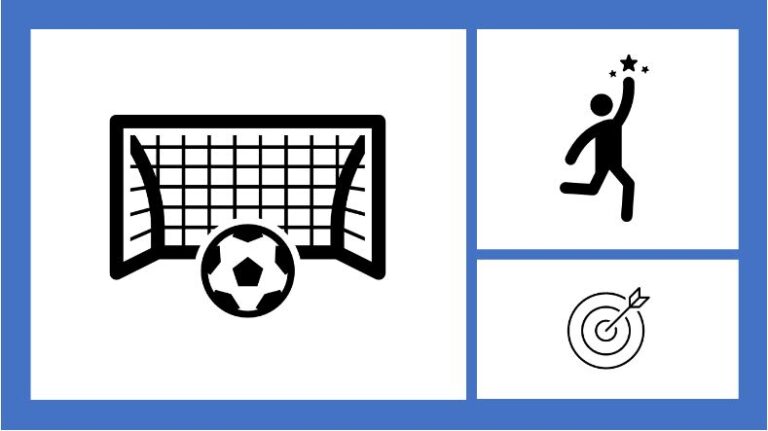How to answer Behavioral Interview Questions with 30+ powerful examples

In a world where competition is fierce and opportunities are scarce, excelling in job interviews has become more crucial than ever. A job interview is not merely a conversation between you and your potential employer, but it is also an opportunity to showcase your abilities, personality, and fit for the role.
This blog post aims to demystify the job interview process, providing you with effective strategies to tackle some of the most common behavioral interview questions. While answering behavioral interview questions may not sound like something that needs a lot of preparation, behavioral questions may be the most important part of the interview process.
We will delve into how you can craft a persuasive personal pitch, align your goals with your career path, communicate your passions, and highlight your key achievements and experiences in a compelling manner.
Through our comprehensive guide, we hope to equip you with the confidence and knowledge needed to navigate through any job interview successfully. Whether you’re a fresh graduate entering the workforce or an experienced professional aspiring for a leadership role, this guide has something valuable for everyone.
This site not only covers resources on the ‘How to answer behavioral job interview questions’ but also provides many sample answers you can use as inspiration.
Here are some helpful job interview related blogs
- Tackling the final interview round
- How to answer ‘tell me about yourself’
- What are your career aspirations
- Why do you want this job
- Why should we hire you
- Why are you leaving your job
- What are you passionate about
- Strengths and Weaknesses In Interview
- Interview questions for managers
- What is your management style
- Interview questions for freshers
- Tips to succeed in a job interview
- Types of interview questions
- Interview questions to ask candidates
- Behavioural interview questions
- Walk me through your resume
- What makes you unique
- What are your goals
- How do you handle stress and pressure
- Are you a team player
- How did you hear about this position
- Where do you see yourself in five years
- How do you handle stakeholders
Introducing yourself – sharing your story
‘Tell Me About Yourself’: Unveiling Your Unique Story – The most common behavioral interview question
Why does a hiring manager ask this question: This is an ice-breaker question that allows interviewers to understand your background, skills, and ambitions. It sets the tone for the rest of the interview & also tests your communication skills.
Other Versions: “How would you describe yourself?” or “Give me a brief overview of your background.”
Ideal Structure: Start with a brief introduction, discuss your current role or most recent job, highlight key achievements, and then share your future aspirations.
Do’s & Don’ts:
- Do: Keep it concise, focused, and relevant to the job.
- Don’t: Dive into personal or irrelevant details.
‘What Are Your Career Aspirations?’: Aligning Your Vision with the Company’s Path
Why This Question: Interviewers ask this to determine whether your career goals align with what the company can offer, assessing your potential longevity with the organization.
Other Versions: “What are your long-term career goals?” or “Where do you see yourself in five years?”
Ideal Structure: Discuss your short-term goals first, then outline your long-term aspirations, ensuring that they align with the role and the company’s growth path.
Do’s & Don’ts:
- Do: Show ambition and foresight, but keep it realistic.
- Don’t: Mention aspirations that conflict with the role or company objectives.
‘What Are You Passionate About?’: Communicating Your Drive and Motivation
Why This Question: This question reveals your interests, values, and what keeps you motivated at work. It helps employers find candidates who will be genuinely engaged in their roles.
Other Versions: “What motivates you?” or “What do you love doing?”
Ideal Structure: Share your passion, explain why it excites you, and if possible, link it back to the role (or job description) or industry.
Do’s & Don’ts:
- Do: Be genuine and enthusiastic.
- Don’t: Choose something unrelated to the job or industry.
‘Walk Me Through Your Resume’: Showcasing Your Professional Journey
Why This Question: This provides an opportunity to highlight your relevant experiences and achievements, allowing the hiring managers to understand your career progression.
Other Versions: “Tell me about your work history.” or “Describe your professional experience.”
Ideal Structure: Start with your earliest relevant role, then move chronologically, focusing on roles and achievements pertinent to the job you’re applying for.
Do’s & Don’ts:
- Do: Highlight relevant skills, accomplishments, and learnings.
- Don’t: Recite your resume verbatim or include every job you’ve ever had.
‘What Are Your Goals?’: Demonstrating Your Ambition and Forward-Thinking Attitude
Why This Question: This helps interviewers understand your long-term commitment, ambition, and whether your personal growth goals align with the opportunities the company offers.
Other Versions: “What are your future plans?” or “What are you looking to achieve in your career?”
Ideal Structure: Discuss both immediate and long-term goals, linking them back to the role and the company.
Do’s & Don’ts:
- Do: Show ambition, foresight, and a desire to grow alongside the company.
- Don’t: Share goals unrelated to the career or that suggest you won’t stay with the company long-term.
‘Describe a Time When You Faced a Challenge at Work’: Uncovering Problem-Solving Skills
Why This Question: This question allows interviewers to understand your problem-solving skills, resilience, and adaptability. It provides insights into how you handle challenges and setbacks.
Other Versions: “Can you share an example of a difficult situation and how you handled it?” or “Tell me about a time you had to overcome a problem.”
Ideal Structure: Use the STAR method – Situation (describe the context), Task (your responsibility in that situation), Action (what steps you took), Result (the outcome).
Do’s & Don’ts:
- Do: Be specific, show your thought process and initiative.
- Don’t: Blame others or pick a situation with a negative outcome.
‘Give an Example of a Goal You Reached’: Assessing Goal-Setting and Follow-through
Why This Question: This question helps interviewers evaluate your ability to set, commit to, and achieve goals, demonstrating your determination and performance under pressure.
Other Versions: “Tell me about a time when you achieved a significant goal.” or “Describe a situation where you met a major objective.”
Ideal Structure: Detail the goal, explain why it was important, describe the steps you took to achieve it, and discuss the outcome.
Do’s & Don’ts:
- Do: Choose a meaningful goal and highlight your role in achieving it.
- Don’t: Pick a minor or irrelevant goal, or one where you didn’t play a key part.
Leadership related behavioral interview questions
‘Tell Me About a Time You Showed Leadership’
Why This Question: This question allows employers to assess your leadership qualities and style, and your capability to motivate, guide, and develop your team.
Other Versions: “Can you share an example where you led a team to success?” or “Describe a situation where you demonstrated leadership.”
Ideal Structure: Describe the situation, your role as a leader, the actions you took, and the impact of your leadership on your team member.
Do’s & Don’ts:
- Do: Demonstrate key leadership traits like vision, communication, and influence.
- Don’t: Choose an example where you were a leader in name only, without any real impact.
‘How Do You Handle Feedback?’: Understanding Your Receptiveness to Criticism
Why This Question: This question helps interviewers gauge your openness to feedback, your ability to learn from criticism, and your commitment to personal growth.
Other Versions: “Can you share an instance where you received critical feedback?” or “Describe a time when you acted on constructive criticism.”
Ideal Structure: Share a specific instance of receiving feedback, explain how you processed it, actions you took to improve, and the results of those actions.
Do’s & Don’ts:
- Do: Show willingness to accept feedback and eagerness to learn and grow.
- Don’t: React negatively or pick an example where you didn’t change anything after receiving feedback.
Addressing Job-Specific Interview Questions
Job-specific interview questions are designed to assess your skills, knowledge, and experience in relation to the specific role you’re applying for. This section will guide you through these questions, highlighting their purpose, alternate formulations, the ideal structure for responses, and important do’s and don’ts.
‘How Would You Handle [Specific Task or Situation Related to the Job]?’: Evaluating Role-Specific Skills and Knowledge
Why This Question: This question allows interviewers to assess your understanding of the job role, your problem-solving skills, and how you would handle real situations related to the job.
Other Versions: “What would you do if [specific scenario]?” or “Describe how you would approach [specific task].”
Ideal Structure: Discuss your understanding of the situation or task, outline the steps you would take, and explain why you believe this approach would be effective.
Do’s & Don’ts:
- Do: Show your understanding of the role, use examples if possible.
- Don’t: Provide a vague or generic answer that doesn’t relate to the specific task or situation.
‘Can You Describe Your Experience With [Specific Tool or Technique]?’: Assessing Technical Proficiency
Why This Question: This question helps interviewers gauge your technical skills and familiarity with tools, technologies, or techniques relevant to the job.
Other Versions: “How proficient are you with [specific tool]?” or “Tell me about a project where you used [specific technique].”
Ideal Structure: Share your level of proficiency, provide examples of projects or tasks where you used the tool or technique, and discuss the outcomes.
Do’s & Don’ts:
- Do: Be honest about your level of proficiency, highlight any certifications or training.
- Don’t: Overstate your skills or avoid giving concrete examples.
What Do You Know About [Specific Aspect of the Job or Industry]?’: Testing Industry and Role Knowledge
Why This Question: This question tests your knowledge of the industry or specific aspects of the job, demonstrating your preparedness and interest in the role.
Other Versions: “What can you tell us about [specific job aspect]?” or “How do you stay updated on [industry trends]?”
Ideal Structure: Demonstrate your knowledge, share sources where you gain industry insights, and discuss why this knowledge is important to the role.
Do’s & Don’ts:
- Do: Show that you’ve researched the industry and role, share relevant knowledge.
- Don’t: Give generic or incorrect information, or show lack of knowledge.
Understanding the intention behind these job-specific questions and structuring your responses appropriately will help you showcase your skills, knowledge, and fit for the role effectively during your job interviews.
Navigating Company-Specific Interview Questions
Company-specific interview questions help employers assess your knowledge about the company, its values, and your fit within its culture. This section will guide you through these questions, highlighting their intent, alternate versions, the ideal structure for responses, and key do’s and don’ts.
‘Why Do You Want to Work for Our Company?’: Gauging Company Knowledge and Interest
Why This Question: This question allows interviewers to assess your understanding of the company, its mission, and whether your career goals align with the company’s direction.
Other Versions: “What interests you about our company?” or “What makes our company appealing to you?”
Ideal Structure: Discuss your knowledge of the company, explain why its mission or values resonate with you, and how the role aligns with your career goals.
Do’s & Don’ts:
- Do: Show that you’ve researched the company and understand its values.
- Don’t: Give generic answers or focus solely on benefits like salary or location.
‘How Do You Align With Our Company Values?’: Assessing Cultural Fit
Why This Question: This question helps interviewers determine if your personal values and work style align with the company’s culture.
Other Versions: “What company value resonates with you most?” or “How would you contribute to our company culture?”
Ideal Structure: Identify the company’s values, provide examples from your experience that demonstrate those values, and explain why they are important to you.
Do’s & Don’ts:
- Do: Be genuine and use specific examples.
- Don’t: Pretend to align with values that don’t resonate with you.
‘What Do You Know About Our Products/Services?’: Understanding Your Knowledge of the Company’s Offerings
Why This Question: This question tests your knowledge of the company’s products or services, showing your preparedness and interest in the company.
Other Versions: “Which of our products/services do you like most and why?” or “How would you improve our current product/service line?”
Ideal Structure: Discuss specific products/services, share what you like about them, and if applicable, suggestions for improvement.
Do’s & Don’ts:
- Do: Show thorough research and understanding of the company’s offerings.
- Don’t: Give vague or incorrect information.
Understanding the purpose behind these company-specific questions and structuring your responses thoughtfully will help you demonstrate your keen interest in the company and your fit within its culture.
Responding to Future-Oriented Interview Questions
Future-oriented interview questions are designed to gauge your vision for the future, your career ambitions, and how these align with the role and the company’s trajectory. This section will guide you on how to address these questions, their underlying intent, possible variations, an ideal response structure, and essential do’s and don’ts.
‘Where Do You See Yourself in Five Years?’: Assessing Long-term Career Goals
Why This Question: This question allows interviewers to understand your long-term career aspirations and evaluate whether these goals align with the company’s growth and development opportunities.
Other Versions: “What are your long-term career goals?” or “What is your five-year plan?”
Ideal Structure: Discuss your short-term goals, then transition into your long-term career plans, ensuring they align with the opportunities the role and the company offer.
Do’s & Don’ts:
- Do: Show ambition and foresight, but ensure your goals are realistic and aligned with the job role.
- Don’t: Mention goals that conflict with the role or suggest you won’t stay with the company long term.
‘How Do You Plan to Achieve Your Career Goals?’: Understanding Your Action Plan
Why This Question: This question helps interviewers assess your ability to set achievable goals and create strategic plans to accomplish them, demonstrating your initiative, determination, and foresight.
Other Versions: “What steps will you take to reach your career objectives?” or “How do you intend to meet your professional goals?”
Ideal Structure: Share your career goals, outline the key steps you plan to take to achieve them, and explain why this approach is effective.
Do’s & Don’ts:
- Do: Be specific and realistic, showing that you’ve thought about your career path.
- Don’t: Provide vague or unachievable plans, or fail to connect your plans to the role.
‘How Will You Stay Motivated in This Role?’: Gauging Your Motivation and Commitment
Why This Question: This question allows employers to understand what drives you and keeps you engaged at work. It provides insights into your motivation and commitment levels.
Other Versions: “What motivates you to perform well in your job?” or “What keeps you inspired and energized at work?”
Ideal Structure: Discuss what aspects of the role excite you, how these align with your interests or values, and how they will keep you motivated.
Do’s & Don’ts:
- Do: Be genuine, showing a connection between your motivations and the job role.
- Don’t: Mention extrinsic motivators like money or perks as your primary source of motivation.
By understanding the purpose behind these future-oriented questions and structuring your responses thoughtfully, you’ll effectively convey your vision, ambition, and commitment, enhancing your chances of success in your job interviews.
Tackling Questions About Past Job Experiences

Questions about past job experiences allow interviewers to assess your suitability for the role based on your previous roles, accomplishments, and challenges. This section will guide you on how to address these questions, their underlying intent, possible variations, an ideal response structure, and essential do’s and don’ts.
‘Why Did You Leave Your Last Job?’: Understanding Your Reasons for Leaving
Why This Question: This question helps interviewers understand your reasons for leaving your previous job, providing insights into your career goals, values, and potential red flags.
Other Versions: “What made you decide to leave your last position?” or “Why are you looking for a new opportunity?”
Ideal Structure: Be honest but positive, explaining your reasons for leaving in a way that shows you’re looking forward to new opportunities rather than focusing on negative aspects of your past job.
Do’s & Don’ts:
- Do: Stay positive, focusing on future opportunities and growth.
- Don’t: Speak negatively about your previous employer or colleagues.
‘Can You Describe a Difficult Work Situation and How You Overcame It?’: Assessing Your Problem-Solving Skills
Why This Question: This question allows employers to evaluate your problem-solving skills, adaptability, and resilience, and provides insights into how you handle challenges and setbacks.
Other Versions: “Give me an example about a challenge you faced at work and how you dealt with it.” or “Give an example of a workplace conflict and how you resolved it.”
Ideal Structure: Use the STAR method – Situation (describe the context), Task (your responsibility in that situation), Action (what steps you took), Result (the outcome).
Do’s & Don’ts:
- Do: Be specific, showing your thought process and initiative.
- Don’t: Blame others or choose a situation that ended negatively.
Handling Questions About Strengths and Weaknesses
Questions about strengths and weaknesses allow interviewers to assess your self-awareness, honesty, and how your unique attributes align with the role. This section will guide you on how to address these questions, their underlying intent, possible variations, an ideal response structure, and essential do’s and don’ts.
‘What Are Your Greatest Strengths?’: Showcasing Your Key Skills and Attributes
Why This Question: This question allows interviewers to understand your key skills, competencies, and attributes that make you a strong fit for the role.
Other Versions: “What do you consider to be your top skills?” or “What positive attributes would you bring to our entire team?”
Ideal Structure: Identify two or three strengths that are relevant to the role, providing examples from your past experiences to illustrate each strength in action.
Do’s & Don’ts:
- Do: Be specific, providing examples and focusing on strengths relevant to the job.
- Don’t: Be overly modest or too general, or claim strengths without providing evidence.
‘What Are Your Greatest Weaknesses?’: Assessing Your Self-Awareness and Growth Mindset
Why This Question: This question helps interviewers gauge your self-awareness, honesty, and commitment to personal growth and development.
Other Versions: “What areas do you need to improve in?” or “What challenges do you anticipate in this role based on your weaknesses?”
Ideal Structure: Acknowledge a real weakness, then discuss how you’re working on improving in this area, showing a commitment to growth and development.
Do’s & Don’ts:
- Do: Be honest but positive, focusing on a weakness that you’re actively working to improve.
- Don’t: Claim you have no weaknesses or choose a strength disguised as a weakness.
By understanding the purpose behind these questions about strengths and weaknesses and structuring your responses thoughtfully, you’ll effectively convey your self-awareness, honesty, and commitment to personal growth, enhancing your chances of success in your job interviews.
Addressing Questions About Teamwork and Collaboration

Questions about teamwork and collaboration are designed to assess your ability to work effectively with others, handle conflicts, and contribute to a positive team environment. This section will guide you on how to respond to these questions, their underlying intent, possible variations, an ideal response structure, and essential do’s and don’ts.
‘Can You Describe a Time You Worked on a Team Project?’: Evaluating Your Teamwork Skills
Why This Question: This question allows interviewers to understand your experience working in a team, your role within the team, and how you contribute to achieving shared goals.
Other Versions: “Tell me about a time when you collaborated with others to achieve a goal.” or “Give an example of a successful team project you were part of.”
Ideal Structure: Use the STAR method – Situation (describe the team project), Task (your role within the team), Action (how you contributed), Result (the outcome for the team).
Do’s & Don’ts:
- Do: Highlight your contributions but also show appreciation for the team’s efforts.
- Don’t: Take all the credit or focus only on the challenges without discussing the results.
‘How Do You Handle Conflicts in a Team?’: Assessing Your Conflict Resolution Skills
Why This Question: This question helps interviewers understand your conflict resolution skills, your ability to maintain professional relationships, and your contribution to a positive team environment.
Other Versions: “Tell me about a time when you resolved a conflict in a team.” or “How do you deal with disagreements with team members?”
Ideal Structure: Discuss a specific instance where you faced a conflict, describe how you handled it, and discuss the resolution and what you learned from the experience.
Do’s & Don’ts:
- Do: Show that you can handle conflicts professionally and constructively.
- Don’t: Speak negatively about past team members or suggest that you avoid conflicts.
Understanding the intention behind these teamwork and collaboration questions and structuring your responses appropriately will help you showcase your teamwork skills and your ability to contribute positively to a team.
Knowing more about you
Behavioral interview questions aim to understand how you’ve handled situations in the past to predict your future behavior. They can cover a range of topics, including problem-solving, interpersonal skills, and adaptability. This section will guide you on how to respond to these questions, their underlying intent, possible variations, an ideal response structure, and essential do’s and don’ts.
‘Tell Me About a Time You Had to Make a Difficult Decision.’: Evaluating Your Decision-Making Skills
Why This Question: This question allows interviewers to assess your decision-making process, problem-solving skills, and ability to handle challenging situations.
Other Versions: “Describe a tough decision you’ve made recently.” or “How do you make difficult decisions in a challenging situation?”
Ideal Structure: Use the STAR method – Situation (describe the challenge), Task (your responsibility), Action (how you made the decision), Result (the outcome and what you learned).
Do’s & Don’ts:
- Do: Show your thought process, emphasizing rationality and consideration of various factors.
- Don’t: Choose an example where you made a poor decision or acted impulsively.
‘Describe a Situation When You Had to Adapt to Change.’: Assessing Your Adaptability
Why This Question: This question helps interviewers understand your adaptability, resilience, and how you handle change.
Other Versions: “Tell me about a time when you had to adjust to new circumstances.” or “How do you deal with change?”
Ideal Structure: Discuss a specific instance where you faced significant change, describe how you adapted, and discuss the outcome and what you learned from the experience.
Do’s & Don’ts:
- Do: Demonstrate flexibility and a positive attitude towards change.
- Don’t: Suggest that you struggle with change or avoid discussing the learning process.
Understanding the intention behind these behavioral interview questions and structuring your responses effectively will help you showcase your transferable skills, adaptability, and problem-solving abilities.
‘What Are Your Hobbies?’: Understanding Your Interests Outside of Work
Why This Question: This question allows interviewers to understand more about your personality, what motivates you, and how well-rounded you are as an individual.
Other Versions: “What do you like to do in your free time?” or “Tell me about your interests outside of work.”
Ideal Structure: Share two or three hobbies or interests that you genuinely enjoy, providing some detail about why they interest you.
Do’s & Don’ts:
- Do: Be honest and enthusiastic, showing a balance of activities.
- Don’t: List hobbies you think the interviewer wants to hear or that you don’t actually enjoy.
‘How Do Your Hobbies Contribute to Your Professional Development?’: Linking Personal Interests to Professional Skills
Why This Question: This question helps interviewers gauge how your personal interests contribute to your skills and abilities in a professional context.
Other Versions: “How does your interest in [hobby] enhance your work performance?” or “Can you give an example of how a hobby has helped you in your career?”
Ideal Structure: Discuss a hobby or interest and explain how the skills or qualities you gain from it can be applied in a professional context.
Do’s & Don’ts:
- Do: Make clear links between your hobby and relevant professional skills.
- Don’t: Force connections that don’t exist or overstate the relevance of your hobbies to the job.
Here are some helpful career/leadership related blogs
- Careers– Agile Coach, RTE, Product Owner, Scrum Master, QA Manager
- Career development plan
- Career growth
- Career change at 40
- Project Management
- Managing Managers
- IT Career switch
- Software Engineering career path
- Agility, Agile Testing
- Remote leadership / Leadership traits / Agile leadership
Other Productivity / Tools posts that may interest you
- Productivity
- Book summary apps – Headway App vs Blinkist vs getAbstract
- AI Writers: / Blogging – Jasper, Writesonic, Article Forge , Copy AI, Anyword, Writecream, Copymatic, Quillbot, Peppertype, Jasper AI (pricing) &
- Work From Home tools: Jabra
Author also writes at his Medium site.





